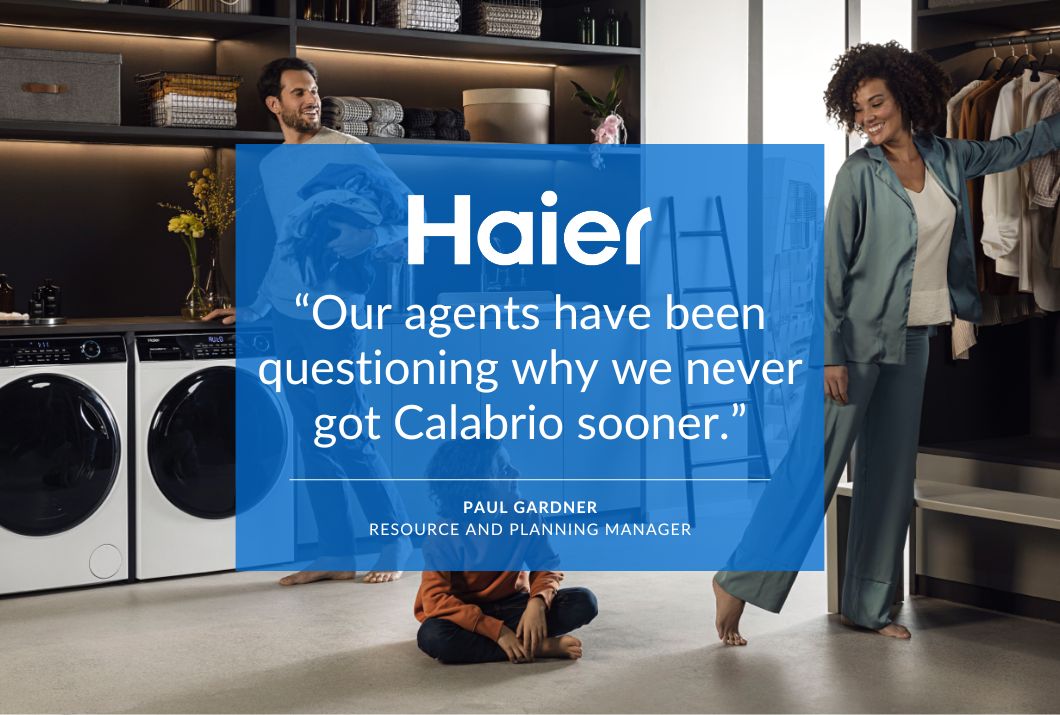WFM win-win – for both management and employees
WFM win-win – for both management and employees

 Those familiar with workforce management (WFM) know it brings about great, wonderful efficiency. Those, however, new to WFM may mistakenly regard it as primarily a management tool, to be used at the expense of staff; i.e. management versus staff. They may hesitate, thinking that because of this, staff acceptance will be difficult to achieve. This is a pity because, while it’s true WFM is a superb monitoring mechanism – e.g. measuring agent adherence, the average handling time (AHT) of calls – it, if implemented correctly, also boosts agent empowerment and morale.
Those familiar with workforce management (WFM) know it brings about great, wonderful efficiency. Those, however, new to WFM may mistakenly regard it as primarily a management tool, to be used at the expense of staff; i.e. management versus staff. They may hesitate, thinking that because of this, staff acceptance will be difficult to achieve. This is a pity because, while it’s true WFM is a superb monitoring mechanism – e.g. measuring agent adherence, the average handling time (AHT) of calls – it, if implemented correctly, also boosts agent empowerment and morale.
I’ve witnessed countless organisations that have implemented WFM, where previously, shift fairness was not at the top of the agenda, nor was the best way to distribute or swap shifts or grant leaves. With WFM, this all changed. The positive impact was seen in greater agent satisfaction and a more slowly revolving door of agents leaving, thus lowering hiring and training costs.
A standard 40-hour week with static start and stop times is easier for an organisation’s planning purposes, but it’s generally not ideal for a young, active workforce whose life outside work doesn’t match such a schedule. Many call centres do have shifts that extend beyond the 9-to-5 work-week hours. But with evening and weekend shifts, who wouldn’t want to have a say in when to work and when not to work? Who knows better than agents themselves which shift suits their lifestyle best? If, for example, your domestic partner works evenings, you may want to match the working hours – or not. If your cash flow has come to a trickle, you might prefer working weekends when compensation might be greater. Without WFM, it’s difficult to take the varying scheduling preferences into account.
Take another scenario: your call-volume demand requires agents to work at least two evenings a month. Rather than simply rotating the schedule, just asking your agents for input – e.g. if they’re available evenings, how many evenings they’d actually prefer to work, which evenings they‘re available – and then being able to take this input into account in the planning creates tremendous goodwill. WFM can implement these individual preferences and meet these needs.
An uneven distribution of the workload (read over- and understaffing) creates an unfavorable work environment. How motivated would you feel about coming to work on Monday, knowing that the workload won’t allow you to take any breaks, yet come Friday, you’ll be sitting idle, bored to tears and twiddling your thumbs? These ups and downs; these extremes, they‘re not good. Agents have eyes and see this is the result of poor planning. What they want and need is a long-term, well-balanced work experience.
Using Excel spread sheets for managing change requests is difficult. If, for example, you allow an agent at the last minute to leave during lunch on Thursday, you can be sure fellow agents will grumble about their recent change requests not having been granted – why not and it’s not fair! No records exist to prove anything one way or the other. With WFM, you’ll have all the information you need at your fingertips. Automated WFM makes the best and fairest scheduling decisions, taking into account call-volume demand, the granting of scheduling preferences and changes requests vis a vis the degree of individual adherence, and much more.
WFM is about increasing efficiency and transparency. It’sabout driving fairness, influenced and adjusted by agent performance. This, in turn, is measured and driven by adherence. While WFM, in a nutshell, optimises the match between the workforce and call-volume demand, equally relevant is its ability to improve employee work-life balance and satisfaction. Schedules, adherence, change requests: everything is transparent, with unfairness becoming a relic of the past. WFM is about balancing the needs of both the organisation and the employees and, as such, is a true win-win formula.









